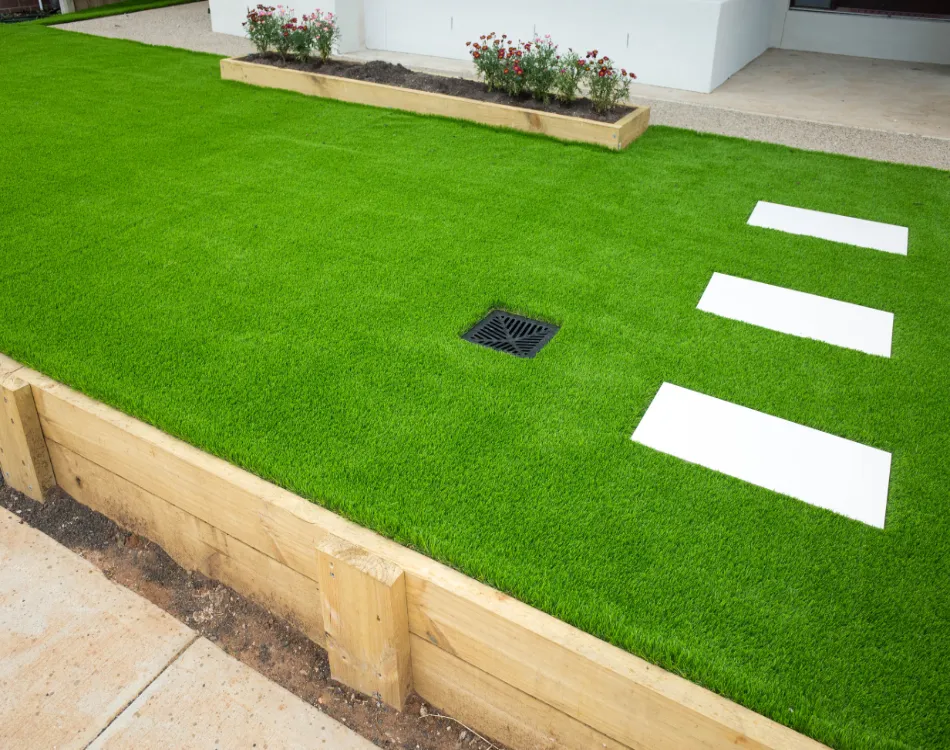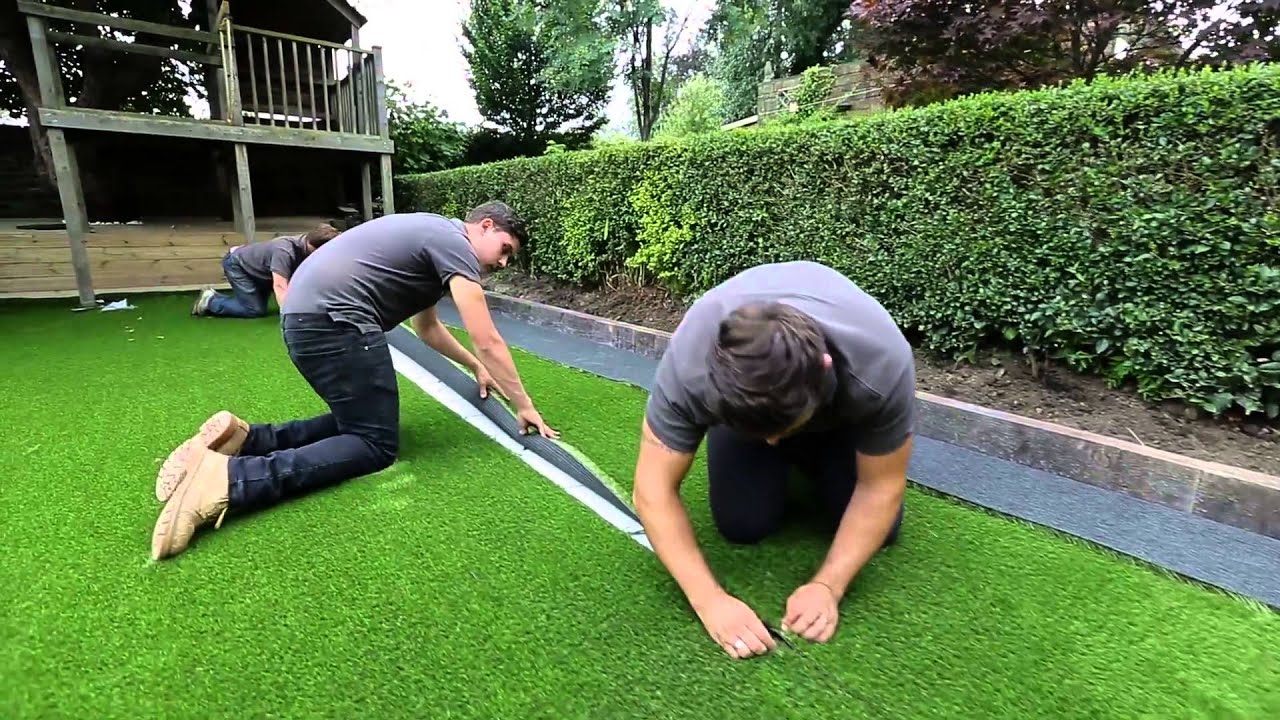Delve Into the Environmental Conveniences of Opting for Synthetic Grass Solutions
The fostering of fabricated turf services provides an engaging chance to resolve pushing ecological challenges. By considerably minimizing water use and decreasing the application of hazardous chemicals, these options not just advertise lasting landscape design however likewise shield regional ecological communities.
Water Preservation Benefits
One of the most substantial advantages of synthetic turf is its capacity to save water. In contrast, artificial lawn does not need watering, significantly reducing the general demand for water sources.
By removing the requirement for regular watering, synthetic grass contributes to lasting landscape practices and assists mitigate the ecological influence of extreme water intake. The conservation of water prolongs to the decrease of runoff, which can lead to dirt disintegration and river pollution.
Furthermore, the installment of man-made turf allows municipalities and homeowners to allot water resources more successfully, concentrating on necessary uses such as drinking water and agriculture. The change in the direction of synthetic grass not only promotes accountable water use yet additionally aligns with broader ecological goals focused on protecting natural sources.
As neighborhoods significantly focus on sustainability, the water preservation advantages of fabricated lawn offer an engaging instance for its fostering in household and commercial landscape design tasks.
Lowered Chemical Use
The change to fabricated lawn dramatically lowers the dependence on chemical treatments typically used in natural grass upkeep. Typical lawn monitoring commonly entails the application of chemicals, plant foods, and herbicides to advertise growth and control parasites. These chemicals can pose risks to human health and wellness, local wild animals, and the setting, adding to soil and water contamination.
In comparison, fabricated lawn gets rid of the need for these unsafe compounds. By decreasing the release of artificial compounds into the ecological community, synthetic lawn promotes much healthier dirt and water systems.
Furthermore, the absence of chemical overflow linked with synthetic grass installations assists shield local rivers from contamination, supporting water life and keeping biodiversity. Artificial turf companies phoenix. As areas increasingly prioritize sustainable techniques, selecting synthetic grass offers a viable service that lines up with ecological preservation objectives. Via this shift, homeowner can take pleasure in lavish environment-friendly rooms without compromising ecological health, leading the way for an extra lasting future
Reduced Carbon Impact

Moreover, the installment of man-made lawn can cause considerable water preservation. All-natural lawns require significant quantities of water for watering, which not only includes to the carbon footprint linked with water removal and treatment yet likewise strains local water sources. On the other hand, synthetic grass requires very little upkeep, requiring no watering, thus significantly lowering water use and its connected energy prices.
Additionally, the longevity of artificial lawn contributes to its decreased carbon effect. With a life-span of approximately 15 years or more, the demand for frequent substitutes is diminished, resulting in less waste and lower energy usage in production and taking care of traditional yard choices. Overall, man-made grass provides a sustainable choice for environmentally mindful landscape design.
Habitat Preservation
Environment preservation is a vital consideration in the argument over landscaping options, especially when comparing synthetic grass to natural lawn. All-natural grass lawns usually call for substantial upkeep, including the usage of fertilizers, herbicides, and pesticides, which can adversely impact neighborhood ecosystems. These chemicals can leach right into the soil and rivers, damaging native vegetation and animals and disrupting neighborhood habitats.
Artificial grass eliminates the need for hazardous chemicals, consequently shielding neighboring wildlife and maintaining the honesty of surrounding communities. The installment of artificial lawn can lead to the conversion of former turf areas into even more biodiverse landscapes, such as pollinator yards or native plant areas, which can support regional wild animals.
Ultimately, the change to synthetic grass not just preserves water and decreases upkeep initiatives but also fosters a more harmonious partnership in between human tasks and the natural surroundings, advertising environment preservation at the same time.
Long-Term Sustainability
Long-lasting sustainability is an important factor in assessing the advantages of synthetic lawn over standard yard yards. One of one of the most significant advantages of synthetic grass is its toughness; it can last as much as you can try these out 15-20 years with very little maintenance, whereas all-natural grass calls for frequent reseeding and replacement. This longevity minimizes the demand for continuous resources, such as water, plant foods, and pesticides, which are essential for maintaining a healthy and balanced grass yard.
In addition, synthetic visite site grass adds to a decrease in carbon exhausts connected with lawn treatment equipment. Typical lawns commonly call for gas-powered lawn mowers, leaners, and blowers, all of which contribute to air pollution. Arizona artificial turf. In comparison, synthetic grass gets rid of the need for such tools, advertising a cleaner environment
In addition, the manufacturing of synthetic grass progressively makes use of recycled products, improving its sustainability account. As manufacturers adopt environmentally friendly methods, the ecological impact of synthetic grass proceeds to lessen.

Verdict
The adoption of synthetic grass remedies offers substantial ecological benefits, including substantial water conservation, reduced reliance on hazardous chemicals, and a lower carbon footprint. Moreover, synthetic grass aids in maintaining natural habitats by decreasing land disruption and promoting long-term sustainability through the use of sturdy products. Collectively, these variables underscore the potential of synthetic grass to contribute favorably to ecological health and wellness and use a sensible option to standard landscape design techniques in a significantly resource-conscious world.
In comparison, fabricated lawn does not need watering, significantly decreasing the total demand for water sources. By reducing the release of artificial compounds into the ecological community, artificial grass promotes healthier soil and water systems.
Furthermore, the installment of synthetic turf can result in significant water preservation. In comparison, man-made grass needs minimal upkeep, calling for no watering, thereby significantly lowering water usage and its linked energy expenses.
